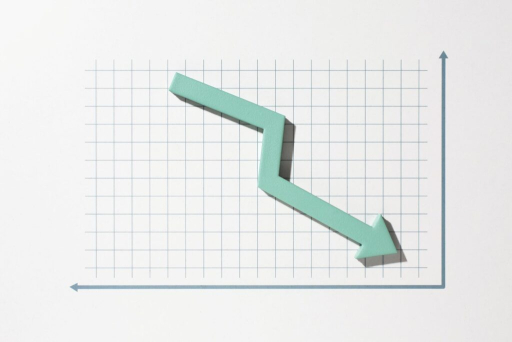
Blog: finance and real estate made simple
Articles and insights to help you navigate and grow
Early Mortgage Repayment Will Get More Expensive – Limiting “Mortgage Tourism”

The current law still states that early repayment is completely free for the client only in a few cases. These include, for example, the end of the fixed interest rate period, serious illness, or death.
In addition, the client can repay up to a quarter of the original loan amount once a year for free. If the client sells a property encumbered by a mortgage, the bank may not charge more than one percent of the remaining loan amount, and at the same time, may not exceed 50,000 CZK (€2,000). In practice, however, these are usually fees in the range of just a few euros.
If the fixed interest rate period agreed in the contract is not respected – for example, due to a better interest rate offer from another bank – you currently risk a penalty in the form of “reasonably incurred costs.”
This term was not precisely defined in the law, and each bank interpreted it in its own way. Therefore, in March 2019, the Czech National Bank (CNB), in response to repeated questions from the public and lenders, issued a statement saying that individual lenders may only charge “objectively necessary costs associated with early termination of the contract, the amount of which is also justified.” These costs include, in particular, administrative expenses for staff, fees for the land registry, postage, printing and copying documents, telephone charges, and office supplies.
With this, the CNB practically reduced the reasonably incurred costs to just a few euros.
New legislation, approved based on a proposal from the Ministry of Finance and confirmed by MPs in November 2023, brings significant changes in the area of early mortgage repayment.
The changes apply to all mortgage contracts or amendments signed from 1 September 2024. They will affect both entirely new and existing contracts – the latter only from the start of the new fixed period (the agreement on a fixed interest rate for a certain time), and at the earliest from the mentioned September 2024.
Banks will be able to require clients to pay compensation for reasonably incurred costs related to early mortgage repayment. This compensation will now include the difference between the original interest rate and the current average market rate, but with a maximum cap (no more than 1% of the total repaid amount).
The early repayment fee will be lower than originally proposed by the Ministry of Finance. Instead of the initially proposed 2%, a 1% cap is introduced. Specifically, the approved amendment allows charging a fee of “0.25% of the early repaid portion of the total loan amount for each started year remaining until the end of the fixed period, but no more than 1%.”
It will still be possible to repay up to a quarter of the original loan amount once a year for free.
From the perspective of refinancing a mortgage to another bank and minimizing potentially high penalties, it is crucial under the new rules to focus on the fixed rate period – i.e., the period during which the bank guarantees your interest rate. The fixed period can usually be agreed from 1 year to 10 years, and the interest rate for different fixed periods always varies according to the current interest rate market situation.
We have prepared recommendations for you in three different scenarios:
1. I don’t have a mortgage but plan to take one this year (2024)
The recommendation is to sign the mortgage contract as soon as possible, ideally by 31 August 2024, at the most favorable rate, without considering the length of the fixed period. The key is to secure the option of early repayment with a low fee. Given the general expectation of interest rate decreases, it’s advantageous to have the possibility of refinancing. We recommend addressing possible refinancing at a lower rate only when you can reduce your current rate by 1% or more. Keep in mind that the higher your mortgage balance, the more you can save on interest when refinancing. If you cannot close the mortgage by the end of August, we recommend a maximum two-year fixed period.
2. I have a mortgage and my current fixed period ends in 2024
Given the approaching end of the fixed period, it is recommended to start dealing with the situation at least seven weeks before its anniversary. Interest rates have been gradually falling since March 2023. The right procedure when considering refinancing is to first contact your advisor, who will inform you about the current interest rate situation. Initially, it is best to approach your current bank and see what rate they will offer you. A good advisor can get you an offer from a competing bank and advise you on negotiating the best terms with your bank. If you cannot achieve favorable terms with your current bank, you can refinance to another bank at the anniversary without a fee. However, you must account for land registry administrative fees of 2,000 CZK (€80) (two payments of 1,000 CZK (€40) each for deletion and registration). If you do not sign an amendment for a new rate by the end of August, it is also recommended to fix the new interest rate for no more than two years.
3. I have a mortgage with an interest rate of 6% or higher
Currently, you can get an interest rate of around 5%, so the recommendation is to wait a few months until rates drop further. Start dealing with the situation at the beginning of summer, aiming to sign documents by 31 August 2024. The priority is the lowest possible interest rate (regardless of the fixed period length) to keep the option of early repayment under the old rules. If you want to calculate your possible interest savings, contact your advisor.
Is it worth repaying a mortgage early?
The decision to repay a mortgage early is key and requires careful consideration and calculation. If early repayment is done through refinancing to another bank, you must consider not only the savings on installments but also other advantages and disadvantages of this step.
To make the right decision, it is necessary to carefully calculate all costs associated with early repayment and compare them with the savings. If repayment is from your own resources – for example, from savings or inheritance – it is always worth comparing how much % per year the mortgage costs and how much % per year you could earn by placing your money in a conservative investment.
Sometimes, the desire to quickly repay a mortgage can mean an economically disadvantageous decision, depriving the client of an investment opportunity and the profit associated with it.
Stone & belter blog
Similar articles
Category















